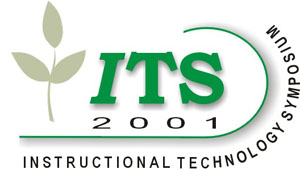Introduction Agricultural issues include not only the production of food, feed, and fiber products, but also issues such as food safety, environmental quality, and use of biotechnology. People have to make decisions on these issues, which directly impact their lives. However, in the U.S.A. only two percent of the population is directly involved in production agriculture, so few Americans have the information needed to make these decisions soundly, a problem known as agricultural illiteracy. In order to increase student's understanding of agricultural/science related issues we have developed a World Wide Web site that addresses topics relating to the social impacts of historically important plant diseases. On our site, Plants, Pathogens, and People, plant disease epidemics are used as case studies to illustrate important issues that involve agriculture. These case studies expose undergraduate and high school students to scientific and societal issues relating to agriculture, and through this exposure to increase the students’ understanding of the agricultural system. Depending on the intent of the instructors who use the materials on this site, the focus can be on the issues and how they pertain to the particular field of study (e.g. biology, history, health), or on the agricultural system itself. The site also gives students a better appreciation for the scientific process and methods of experimentation. Currently the site allows students to explore the topics of late blight and the Irish potato famine, and Dutch elm disease and the decline of the American elm. Additional case studies will be added in the near future. The site For each case study the student is allowed to explore a virtual lecture hall and a virtual laboratory. The first module addresses the issue of biology and politics and involves the case of late blight and the Irish potato famine. The late blight epidemic of the mid 1840s resulted in the starvation and forced emigration of millions of Irish. The lecture segments include information on the history of the potato, social conditions in Ireland in the 1840s, the biology of the late blight pathogen, and the concept of the plant disease triangle. The laboratory allows students to evaluate the effects of temperature, rainfall, resistant varieties, and fungicides on the development of late blight. The students record their hypotheses, observations, and conclusions in a lab notebook that can be emailed to their instructor when completed. A second module addresses the problems with monoculture through the example of the continuing epidemic of Dutch elm disease in the U.S.A. The lecture segments include information on the appearance of the disease in Europe and its dissemination to the U.S.A., the early research on the disease by Dutch women plant pathologists, the role of insect vectors in disease transmission, and strategies for managing the disease. In the laboratory students can evaluate the effects of plant spacing, mixed stands vs. monocultures, and sanitation practices on disease progression over time. In the both the late blight and Dutch elm laboratories students can take quizzes to test their understanding of the topics. The web site is structured in such a way as to allow students to pursue the avenues that are most interesting to them, and at their own pace. The site will be further developed to allow students to obtain more detailed information on each topic from other sources of information and to promote inquiry based learning. The web site presents information in several different formats, including photographs, micrographs, maps, audio files and written text, and there are plans to add more audio and short video segments. The site is located at http://www.outreach.uiuc.edu/PPP. The lecture segments can be viewed using either Netscape or Internet Explorer. At present, the laboratory exercises run best on Netscape (version 4.2 or higher) with Java and Javascript enabled. Full use of the site also requires the installation of Macromedia’s Shockwave and Real Network's RealPlayer. End
|
